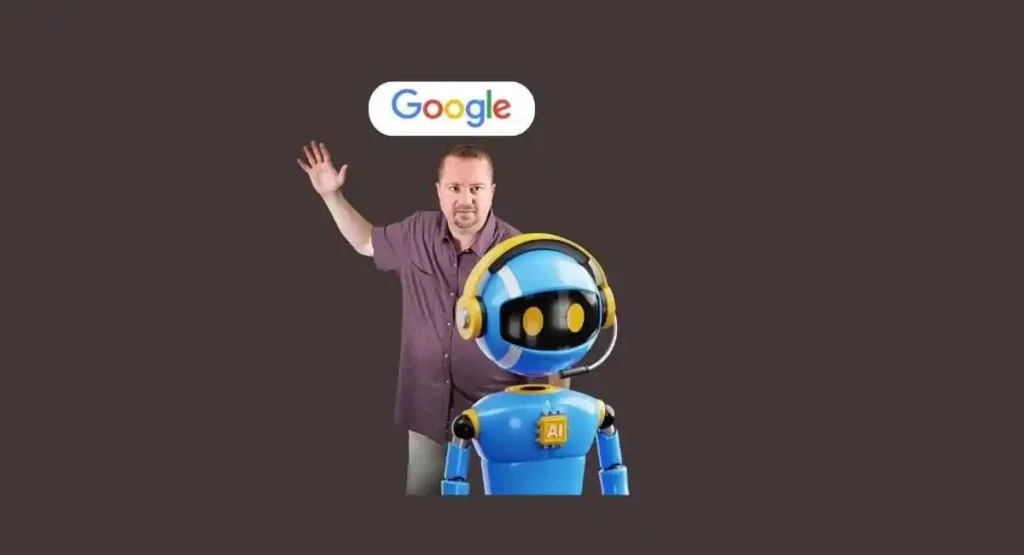You might think that the content you are reading right now is AI content. There are plenty of AI tools that can make your life easier, and as they are capable of generating AI content, a pressing question arises: Do search engines, especially Google, favor human-written content over AI-generated content? Let’s learn more about this subject to find out the truth.
What is AI-Generated Content?
AI-generated content is text that a computer program has written on its own, without any human assistance. As natural language processing and machine learning have gotten better, a lot of AI writing tools have come out on the market. These tools make it easy to make a lot of content quickly, help with scaling up production, boost the quality of content, and cut down on study time. But publishers are getting more and more worried about how search engines will react to this kind of material.
What is Human-Written Content?
Real people use their knowledge, emotions, and experiences to write human-written material. It usually has a personal touch, tone, and subtlety that show the writer’s unique point of view. Although it might take longer to produce than AI-generated content, readers are more likely to identify with it because it feels more authentic.
Can Google detect AI content?
Yes, Google and other search engines are getting better at finding AI-generated information. They look at text patterns that are typical of computer-generated writing using techniques like natural language processing tools. That being said, Google knows if you use AI to write content.
Does Google’s helpful content update penalize AI content?
The new “helpful content update” from Google is meant to support things that are relevant to the audience, show expertise, meet search intent, and follow Google’s webmaster guidelines. At first, Google said that helpful material should be “written by people,” but they quickly took that out of their documentation. This suggests that the quality of the content, not whether AI or a person made it, is what counts. Google’s main objective is to combat low-quality content, which does not always entail AI-produced content.
Follow Google’s Helpful Content Update Policies to Avoid Being Downranked
Google’s Helpful Content Update aims to prioritize content that truly benefits readers. It’s a reminder that quality trumps quantity. Google wants to make sure that what people find in their search results is:
- Genuinely Informative: Content shouldn’t just be made to rank well in search engines. It should offer real value to readers.
- Written by Experts: If you’re writing about a topic, you should know what you’re talking about. Google can spot content written by someone with little knowledge on the subject.
- Not Overly Self-Serving: Too many affiliate links or content that seems more like an ad than helpful information can be a red flag.
- Truly Helpful: It should answer questions, provide insights, and make readers glad they clicked on it.
Remember, if Google thinks a lot of your site’s content isn’t helpful, it might downrank all of your pages, even the good ones.
How to Create Helpful Content
To stay in Google’s good books, you need to make material that stands out and helps your readers. To make sure your work is great, do these things:
- Write for Your Readers: Search engines should never come before your readers. Make sure your material is easy to understand, useful, and relevant.
- Stay Accurate: Make sure the information you use is up-to-date and true. Always check your facts again and give credit to the people who you got them from.
- Provide Real Value: Try to help people and answer their questions. They should be able to use your information to make smart decisions.
- Be Yourself: Share your unique thoughts and experiences. Being real can help your work stand out from the rest.
- Respect Your Readers: Do not avoid the issue. Give them the information they want without making them sort through extraneous stuff.
How does Google Helpful Content Update Impact SEO?
If the Helpful Content Update Affects You
Don’t worry if you think the Helpful Content Update has changed your site. First, look over your text again. Make sure it fits with what Google means by “helpful.” Google’s Search Console can also show you which pages might not be doing enough. It might take some time to make your content better, but it’s the only way to win back Google’s trust and rebuild your online image.
Summing Up on AI-generated content
Quality content matters most, even though Google can detect AI involvement. Even if you use a computer to write your content, it can still be informative, useful, and interesting and rank well in search results if you adhere to Google’s Helpful Content Update guidelines.

